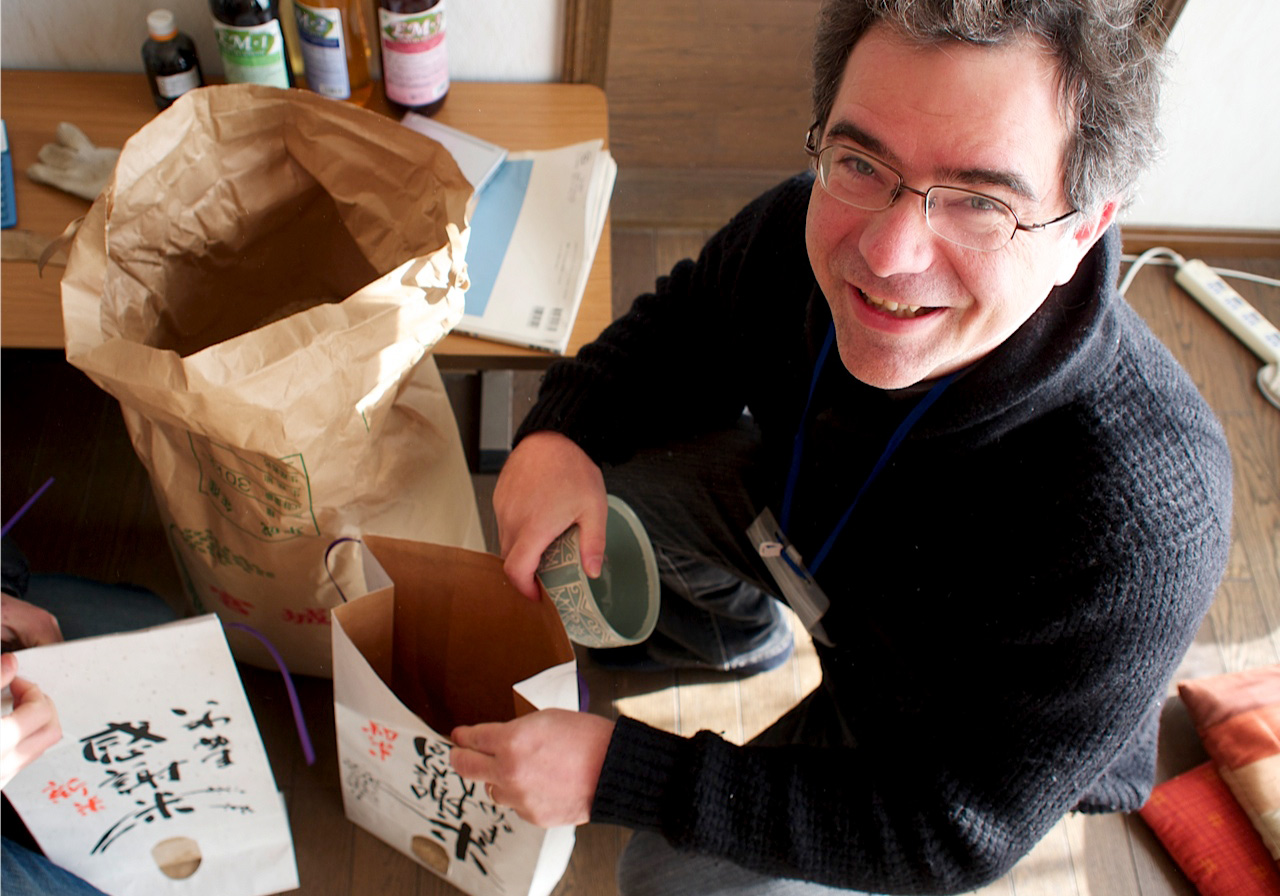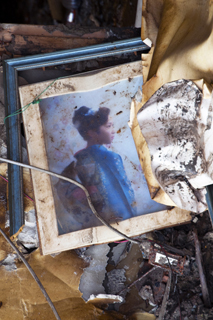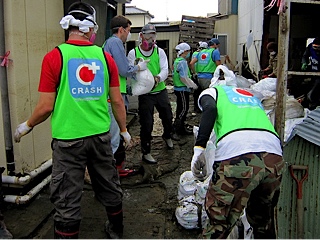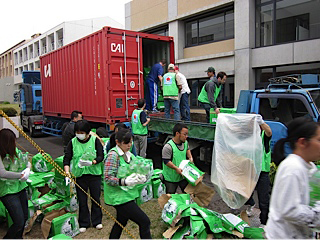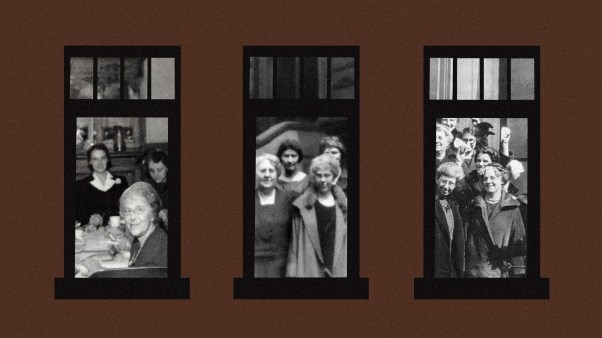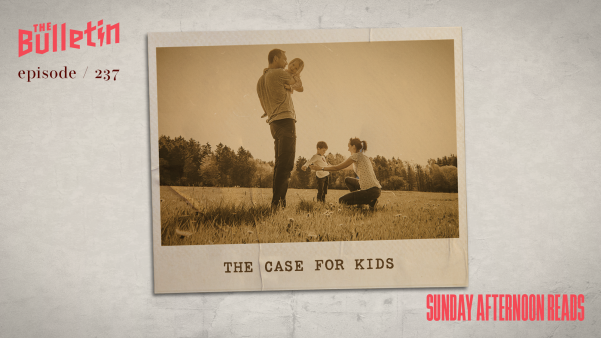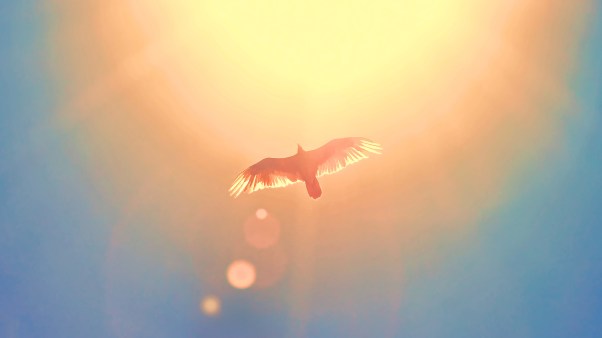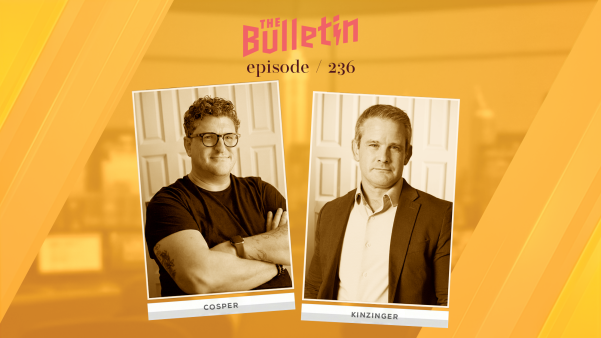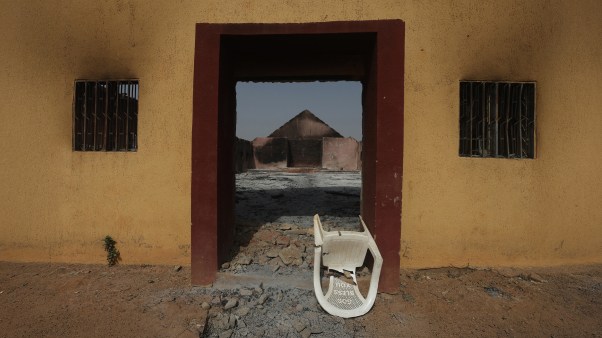A natural disaster occurs nearly every day somewhere on planet earth. On average each year, there are 3 million earthquakes, 85 hurricanes, and 60 volcano eruptions worldwide, and in the US, 1,000 tornadoes occur. From 2001 to 2011, 7 million people died in natural disasters.
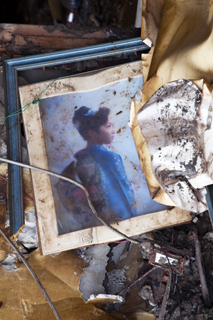 Courtesy of CRASH Japan
Courtesy of CRASH JapanDue to its location and geography, Japan has a high rate of earthquakes, typhoons, and other natural disasters. Several years ago, Jonathan Wilson, a missionary pastor in Tokyo, launched CRASH Japan (Christian Relief Assistance Support Hope). The goals of the organization are to train and mobilize Christian volunteers to provide "help and hope" before and after a natural disaster. Wilson spoke recently with Christianity Today senior editor for global journalism, Tim Morgan.
You started CRASH Japan in 2005. Why create another disaster relief organization when so many already exist?
When I got here 25 years ago, there was a bubble economy. The Japanese had medicine. They had technology. They had education. The only thing they actually needed from me was English. But I didn't go to Japan to be an English teacher. I went there to spread the gospel.
When the Kobe earthquake hit 1995, it was a huge event—6,500 people died. Everybody tried to do something, but it really wasn't enough. We did learn that in times of disasters that needs are most prevalent.
In 2007, there was an earthquake in Niigata on the seaside coast. Suddenly mass amounts of people headed to evacuation shelters. I said, "This is getting ugly." Nobody had a clue what to do. I ended up in a truck with a guy from Second Harvest Japan and another guy from YWAM, and they all said, "Yeah, we don't know who's doing anything, but we want to do something."
We ended up renting a truck, filling it with food, driving it up the middle of the night, and we got there with food, went back, got some more, did it again. Through that experience I came back and I thought—this is something that the church does.
We should be involved in disaster, and around the world we're pretty good at it. What's holding us back here in Japan? We identified three things. Lack of information. Nobody knew what was going on. Lack of training. In Japan unless you're trained and you're certified, nobody does anything. Lack of practical leadership on the ground. We started very simply in our own church, and then invited as many others to come along with us as we could. This unfolded over the next eight or nine disasters in Japan.
When the 2011 tsunami hit, we had a room of 120 mission leaders, pastors, leaders of denominations who showed up and said, "Okay. What do we do?"
At that time, was it clear to most people that the government was too slow in responding?
There were some levels of pride: We don't need help. We're an advanced nation.
On many accounts for the tsunami—the scale of it, the area involved, the complexity of the disaster—I would give the Japanese government actually very high marks. I wouldn't say that we're faulting the government at all. I would say that the church brings very unique resources that the government really doesn't have a way to provide: Emotional and spiritual care.
CRASH has a motto: We bring help and hope.
Why use volunteers to provide assistance after a huge, complex disaster? It seems like more trouble that it is worth.
We were able to mobilize volunteers from all over the world and sent them up into rural Japan where people really don't speak anything but Japanese. What we found was that rural people were so impressed that individuals would come from another part of the world to help them. They were encouraged.
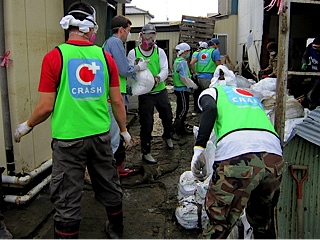 Courtesy of CRASH Japan
Courtesy of CRASH JapanBut disaster damage isn't all right there at ground zero. It's spread out, and you have people who can't make it to the hospital or the feeding station is, or they're in a remote area, or have special needs, or they don't speak the language of the majority.
For relief agencies to meet the needs of everybody is very costly. That last 10 percent is very expensive. But I can come in with volunteers and we can meet those needs at the gaps of those people who aren't being served.
We got thousands of blankets donated to us by the Japanese retailer UNIQLO. That was wonderful. We distributed many blankets from Samaritan's Purse. It was wonderful. But then a little bit later, people from all over North America sent 1,760 new handmade quilts. We handed these out. You should see the difference on people's faces between being handed a relief blanket and something that's handmade! Disasters de-humanize. If you're in an evacuation center or temporary housing, if you're in a line to get food, you feel less human than you did when you were in your home.
I can come in with a blanket and that's help. But if I can come in with that handmade item, it is hope. That's the sweet spot for Christian volunteers.
During this time, did any local Japanese leaders accuse CRASH of meddling or was there push back?
I wouldn't say it's so much pushback as silence. Can one missionary really made a difference in a country and change the way they approach how they relate to their community?
The church in Japan has tended to be an isolated church. They are very concerned with their own membership. They've been inward looking. What I've been trying to help them do is to be outward looking, not just during disasters, but during normal times.
That idea has spread. Japanese now say, "We need to be soto muki.[outward looking]." They're now picking up the ball and running with it.
So is this change of mindset occurring at the grassroots?
When the tsunami hit was saw three walls start to come down. This is not original with me.
Another pastor shared this: One is the walls between churches. Nobody cares if you're a Baptist or a Presbyterian. Just get in there and shovel. The second wall has been the wall between the church and the community. Communities have realized that the ones who are still helping us are the Christians. The third one is the wall between Japan and the world. And Japan has now embraced, Hey, we need you. Not in a dependent sort of way but just there's a whole wealth of resources out there that we need to engage with. That's a big shift from pre-tsunami Japanese church thinking.
This little tiny church still doesn't have the capacity to allow that the love of Christ to flow through it. What we did as CRASH is–over time the role of the church grows, and the role of the relief effort diminishes. We've built the capacity of the church to minister to their community. If we don't decrease, then they're not going to increase.
The help and hope model is where we want it to be "both—and." In the Japanese context, many Japanese have never heard the gospel once in their lives. We cannot go in there and hand out tracts on day one.
Before the tsunami along that stretch of coastline, there were only seven churches from Miyagi all the way up through Iwate. That's an area of coastline that would, say, be from San Francisco up to the Oregon border.
Now there are about 25 church plants and different mission groups working in the area. They've moved on from straight relief to nurturing congregations.
We follow up long term. After all the other groups have gone home, we're still with them. We know it's not done, and we're going to be here with you.
How do you inspire people with this vision?
In Japan, we've seen a missionary force there that's been dwindling. It's expensive to send missionaries to Japan. Frankly, it's been discouraging. What we find is that volunteers who have come to Japan are now saying, "I want to serve in Japan." New, fresh missionaries are coming in, pulled to Japan by the Lord. There's a new crop of young Japanese being raised up to go into ministry.
Are perceptions of Christians changing?
There is an increased respect for the Christians in Japan, because Christians have gotten involved. I was visiting a temple in Onogawa, Japan, largely destroyed by the tsunami. It had sheltered about 100 evacuees.
Tim, a CRASH staff missionary who grew up in that area, brought in relief to evacuees at this temple. He said to a Buddhist monk, "By the way, I grew up here. I went to this preschool down the road."
The monk said, "I went to that preschool too." It turns out that the monk was actually younger than this missionary. In Japan, that means there's a special relationship: We've got to take care of each other. Tim would go back and talk with the monk, his wife, and kids. The monk was struggling over how to encouragement and hope. Tim said, "Well, I get my material out of the Bible."
The monk replied, "I think I'm going to start reading the Bible."
This is a true story! I visited this place a bit later, and I had some other relief leaders with me that weren't Christian. We went to the temple. I prayed with the monk at the end. I was able to encourage him. As we were driving out, and the Japanese guy with me—not a Christian—said "I don't get it. They're Buddhist. You're Christian. And how come you guys get along so well?"
I looked at him and I said, "We're both human."
"Oh, good answer!" he said.
The door is opened again to Japan.
So what is your message to the global church?
In any nation around the world, we want to say we're here with hope. We're here with something that you really can't get anywhere else.
The other thing I would say for the global church is: Please do not give up on Japan. This is the best opportunity to reach Japan since World War II—the best opportunity. We don't know how long it's going to last.
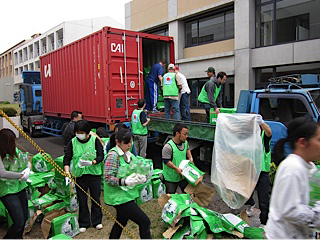 Courtesy of CRASH Japan
Courtesy of CRASH JapanVeteran missionaries, folks that have been around forever, are moving up to Tohoku, the disaster zone. These individuals who were the heads of missions and they'd been in the field for 30 years. They've been praying for this for the whole time they've been in Japan, and they don't want to miss it.
We need another call for people to come and evangelize Japan. It's brutally hard. It's discouraging. It's expensive. It's been one of the least successful mission fields ever. And I haven't given up on it yet.
What can Christian leaders learn from the church in Fukushima?
The true takeaway is that we're all the same body of Christ. I had a skiing accident about two weeks before the tsunami and broke my thumb. After the tsunami hit, I had my thumb in a cast. Everybody was asking, "Oh, did that happen in the earthquake?"
"Oh no, I was skiing."
But it helped me make a point. I stood in front of a large crowd of people that were coming to pray and be mobilized, and I lifted up my thumb and I said, "You know when even this small part of the body hurts, the whole rest of the body gathers around and supports it and protects it and helps it. This is what we are called to do for the church in Tohoku."
How we help is very important. We don't want to burn them out and simply just use them to deliver our relief supplies or to host our teams. But the real idea is care. If we care for them well, then they will be able to care for their community, and we will see a huge impact in the world for Christ.

